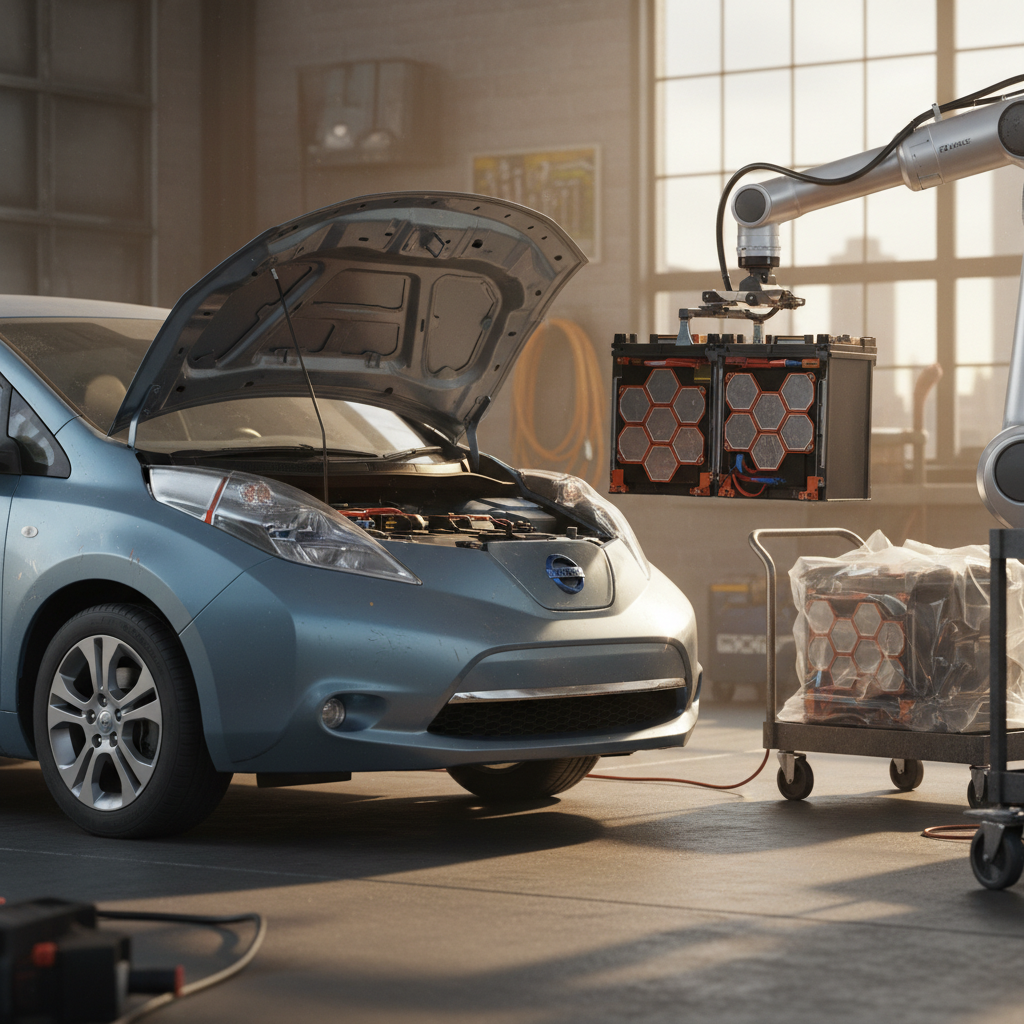Ask ten people what the Chevrolet Bolt EV price is and you’ll get eleven answers. New, used, fire-sale, post-recall, post-discontinuation, pre-relaunch, this little electric hatch has seen more plot twists than a prestige TV drama. If you’re trying to figure out what a Bolt should actually cost in late 2025, and whether it’s a smart buy, this guide is your map.
Context: where we are in 2025
Why Chevrolet Bolt EV prices matter right now
1. It’s one of the cheapest real EVs
The Bolt EV delivers real range (around 238–259 miles EPA), DC fast charging, and hatchback practicality. On today’s used market, many examples cost less than an economy gas crossover, which is why savvy commuters and rideshare drivers are hoovering them up.
2. It’s a bellwether for affordable EVs
Analysts keep asking when America will see a truly affordable EV. The used Bolt EV is effectively that car today: modern safety tech, decent performance, and sub‑$20,000 pricing in many cases. Watching Bolt prices is a good proxy for where the rest of the EV market is heading.
Quick answer: Chevrolet Bolt EV price today
Chevy Bolt EV price snapshot (U.S. used market, late 2025)
Rule of thumb
Used Chevrolet Bolt EV prices by model year
One quirk of the Bolt market: older doesn’t always mean dramatically cheaper. Battery recalls, warranty coverage, and range expectations all tug on price. Here’s how the landscape typically looks as of late 2025, assuming average mileage and clean history from a dealer or reputable marketplace.
Typical Chevrolet Bolt EV used prices by model year
Approximate U.S. retail asking prices from dealers and major marketplaces, late 2025. Your local market may run a bit higher or lower.
| Model year | EPA range (mi) | Typical price range | What to know |
|---|---|---|---|
| 2017 | 238 | $9,500–$13,000 | First-year cars. Oldest packs and tech; look closely at battery recall history and remaining warranty. |
| 2018 | 238 | $10,500–$14,000 | Similar to 2017 but often lower miles. Strong value if battery health checks out. |
| 2019 | 238 | $11,500–$15,000 | Sweet spot between price and age; lots were leased, so plenty of off-lease inventory. |
| 2020 | 259 | $13,500–$17,000 | Range bump and incremental improvements; often worth a small premium over 2017–2019. |
| 2021 | 259 | $14,500–$18,000 | Pre-facelift, but newer builds and more warranty left. Good for buyers prioritizing longevity. |
| 2022 | 259 | $17,000–$21,000 | Post-refresh styling and big new-car price cuts originally; tends to hold value better. |
| 2023 | 259 | $18,000–$23,000+ | Final model year, heavily discounted when new. Demand is strong; condition matters a lot. |
These are market ranges, not promises. Always verify pricing for your ZIP code and vehicle condition.
Always price the car, not just the year

Chevy Bolt EV vs Bolt EUV prices
Chevy complicated its own naming with the Bolt EV (hatchback) and Bolt EUV (a slightly longer, more SUV-ish version). When you’re shopping used, the EUV usually carries a modest premium, but not enough to change the core decision for most buyers.
Bolt EV vs. Bolt EUV: how prices stack up
Two flavors of the same idea: affordable, compact electric transport.
Bolt EV (hatchback)
Typical used price (late 2025):
- 2017–2019: roughly $10,000–$15,000
- 2020–2022: roughly $14,000–$19,000
- 2023: often $18,000–$23,000+
Best for: Solo drivers, city dwellers, budget hawks who prioritize value over the latest styling.
Bolt EUV (longer crossover-ish version)
Typical used price (late 2025):
- 2022: often $18,000–$22,000
- 2023: roughly $19,000–$24,000+
Best for: Small families or rideshare drivers who want a bit more rear-seat space and a more SUV-like profile.
Good news for shoppers
How the Bolt EV compares to other affordable EVs
We’re now in a market where early Nissan Leafs and Fiat 500e compliance cars are practically being given away. The Bolt EV usually costs more than those, and less than a Tesla Model 3. The difference is that the Bolt sits in a sweet spot: enough range to be a true gas replacement, without the Tesla tax.
Bolt EV vs other cheap EVs (used market, late 2025)
Rough comparison of typical asking prices for popular used EVs in the U.S. You’ll find outliers, but this is how the market tends to feel when you start browsing listings.
| Model | EPA range (mi) | Typical used price | Takeaway |
|---|---|---|---|
| Chevrolet Bolt EV (2019–2021) | 238–259 | $13,000–$17,000 | Best mix of range, price, and practicality. Great commuter or second car. |
| Chevrolet Bolt EUV (2022–2023) | 247 | $18,000–$23,000 | Slightly higher price for extra space and newer styling. |
| Nissan Leaf (2018–2020, 40 kWh) | 150 | $8,000–$12,000 | Cheaper, but significantly less range; better as a short-hop runabout. |
| Tesla Model 3 Standard Range (2018–2020) | 220–250 | $20,000–$26,000 | More expensive. Better Supercharger access and performance; higher insurance costs. |
| Hyundai Kona Electric (2019–2021) | 258 | $16,000–$22,000 | Similar range with slightly better efficiency; inventory is thinner in many regions. |
Prices are approximate and assume average mileage and clean titles.
Bolt EV’s pricing superpower
What actually drives Chevrolet Bolt EV price up or down
- Battery recall status: Cars with completed recall work, documentation, and fresh packs typically command a premium and sell faster.
- Battery health: A Bolt EV that has lost very little capacity (for example, still showing close to its original range on diagnostics) is worth more than one with noticeable degradation.
- Mileage and usage: Highway miles with regular DC fast charging aren’t necessarily a deal-breaker, but very high mileage will pull prices down.
- Warranty remaining: Chevy’s 8‑year/100,000‑mile battery warranty is a big psychological comfort. Cars that still sit inside that window are more desirable.
- Trim and options: 2LT/Premier trims with better audio, safety aids, or leather-like seating can add value, but don’t overpay just for cosmetics.
- Local incentives: State and utility rebates for used EVs can quietly raise local demand, and asking prices, without changing national averages.
Don’t price a Bolt like a normal compact hatch
Battery health, price, and the Recharged Score
Underneath every Bolt EV price is a quiet question: what shape is the battery in? The pack is the single most expensive component in the car. A healthy battery turns a used Bolt into a long-term bargain; a weak one turns it into an anxiety machine.
How Recharged makes Bolt EV pricing less of a mystery
Battery health is no place for guesswork.
Verified battery diagnostics
Fair-market pricing
End-to-end support
How to shop smart for a used Chevrolet Bolt EV
6 steps to getting the right Bolt EV at the right price
1. Start with your range reality
Be honest about your daily driving. If you rarely exceed 80–100 miles in a day, even an older Bolt with a bit of degradation will feel liberating compared to gas. If you road-trip constantly, prioritize newer years and stronger DC fast charge performance.
2. Decide on EV vs EUV early
The Bolt EUV’s extra rear legroom and slightly different look are nice, but not mandatory. Decide whether that matters to you before you shop; it’ll keep you from getting pulled into emotional, last-minute upsells.
3. Demand documented battery recall work
Every Bolt EV was touched by the battery recall saga. You want paperwork showing the recall has been completed and, ideally, whether the pack was replaced or simply reprogrammed. At Recharged, that context is baked into the Recharged Score Report.
4. Insist on a real battery health report
An honest seller should be able to provide third‑party or factory diagnostics, not just a full-looking battery icon on the cluster. On Recharged, that report comes standard; elsewhere, consider paying for an independent EV inspection.
5. Compare total costs, not just price
Add taxes, fees, charging equipment, insurance, and any needed maintenance. A seemingly cheap car at a traditional dealer can become more expensive than a fairly priced, fully transparent EV from a specialist marketplace like Recharged.
6. Line up financing before you fall in love
Pre‑qualifying for financing, whether through your bank or a marketplace like Recharged, lets you shop within a real monthly payment instead of guessing. It also gives you leverage when a seller tries to inflate their finance terms.

Skip the lot-hopping
Future pricing: what we know about the 2027 Chevy Bolt EV
GM has already announced that the Bolt nameplate is coming back on a new platform with modern batteries and updated tech. While the car itself won’t show up in driveways until around the middle of the decade, the pricing headlines are already shaping expectations for both new and used buyers.
What GM is signaling
- Starting price: Public statements and early reports point to a base price just under $30,000 before destination, again targeting “cheapest real EV you can buy” status.
- Range: Early estimates circle around 250+ miles, right in line with the outgoing car.
- Charging: Support for the Tesla North American Charging Standard (NACS) from day one, which means Supercharger access without an adapter.
What that means for used Bolt prices
- Short term (2025–2026): Used prices are likely to stay relatively firm, especially for clean 2020–2023 examples, because there’s still no flood of cheap new EVs.
- When the 2027 hits: Expect a gentle softening in used values as new‑car shoppers migrate, but first‑gen Bolts will remain attractive to bargain hunters.
- Long term: The Bolt becomes what the Honda Civic once was: the sensible, ubiquitous used choice, only this one sips electrons instead of unleaded.
Should you wait for the new one?
FAQ: Chevrolet Bolt EV price and ownership costs
Frequently asked questions about Chevy Bolt EV pricing
Bottom line: Is a Chevrolet Bolt EV worth the price?
If you judge a car strictly by badge prestige, the Chevrolet Bolt EV will never move you. If you judge it by price, range, and how much life it returns to your wallet, it’s one of the most rational buys in the used market today. For well under the price of a lightly used compact SUV, you get a quiet, quick electric hatch that shrugs off commuter traffic and grocery runs without burning a drop of fuel.
The real trick is separating the bargains from the time bombs. That means looking past the monthly payment and focusing on battery health, recall history, and transparent pricing. A curated marketplace like Recharged, with verified Recharged Score battery reports, fair‑market pricing, financing, trade‑in options, and nationwide delivery, does the sorting for you. You show up with your budget and your needs; the right Bolt EV shows up in your driveway. That’s how this car makes the most sense: as an honest tool that quietly pays you back every mile you don’t buy gas.



